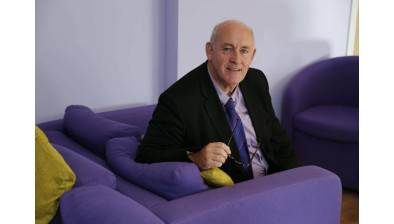New census reveals big growth of social enterprises in Scotland
 A new report has highlighted a clear growth in the number of social enterprises in Scotland and their economic impact.
A new report has highlighted a clear growth in the number of social enterprises in Scotland and their economic impact.
Launched at the CEIS Policy and Practice conference in Glasgow this week, the latest Social Enterprise in Scotland: Census 2017 report found that there are now 5,600 social enterprises operating in Scotland (up from 5199 in 2015).
The number of social enterprises in the housing sector increased by four over the last two years to reach 226 (4% of all social enterprises in Scotland).
The economic contribution of social enterprises to Scotland reached £2 billion GVA

The financial strength and contribution of social enterprises varies across economic sectors, though is strongest in the fields of housing and health & social care which together account for 70% of all income to the sector.
Housing associations now account for 41% of the sector’s income, an increase from the 36% share reported in 2015 and were responsible for £1.21bn (46%) of social enterprise trading activity last year.
Housing associations also account for just over half of the net worth of the sector (51%) and three quarters of the total assets held.

Together with health & social care, housing makes up approximately one sixth (16%) of all social enterprises, but creates two thirds of the sector’s entire 81,357 full-time equivalent employees.
According to the report, a remarkable 97% of housing social enterprises pay the Living Wage, while 15% make use of zero hours contracts.
Gerry Higgins, of Community Enterprise in Scotland (CEIS), speaking on behalf of the steering group said: “Social Enterprise in Scotland: Census 2017 demonstrates a strong and growing social enterprise community in Scotland. The data in the report contain a broadly positive picture, with social enterprises making a significant economic contribution and demonstrating resilience in the face of challenges for the economy and public services.
“Social enterprises play an essential role in communities across the country, particularly in the most remote parts of Scotland. The 2017 Census also shows that some parts of the sector remain fragile or in need of continuing support to fully realise their potential.
“This is the second time we’ve measured social enterprise activity across every region of Scotland and allows us to begin comparing and contrasting the data with the 2015 Census.
“As public expectations of business and the need for an inclusive economy grow, we need to continue investing in Scotland’s world-class support for social enterprise. A huge thank you must go to everyone who took part in leading the research, from the national steering group to the dedicated research team who produced such a thorough and robust report.”

Angela Constance MSP, cabinet secretary for communities, social security and equalities, added: “I have no doubt of the contribution that social enterprises make to our country. They are fantastic examples of what we want to achieve in a fairer Scotland - reducing inequality, lifting people out of poverty and encouraging more empowered and resilient communities. It is staggering, but perhaps unsurprising, that the sector makes a combined contribution to the Scottish economy every year of just over £2bn.
“The Scottish Government will continue to support social enterprises through our ten year strategy, investing millions of pounds into the sector. We are also keen to work with social enterprise communities at home and abroad, particularly around the Social Enterprise World Forum. I am proud of all we have achieved, working collaboratively and I look forward to doing even more in the years to come.”







